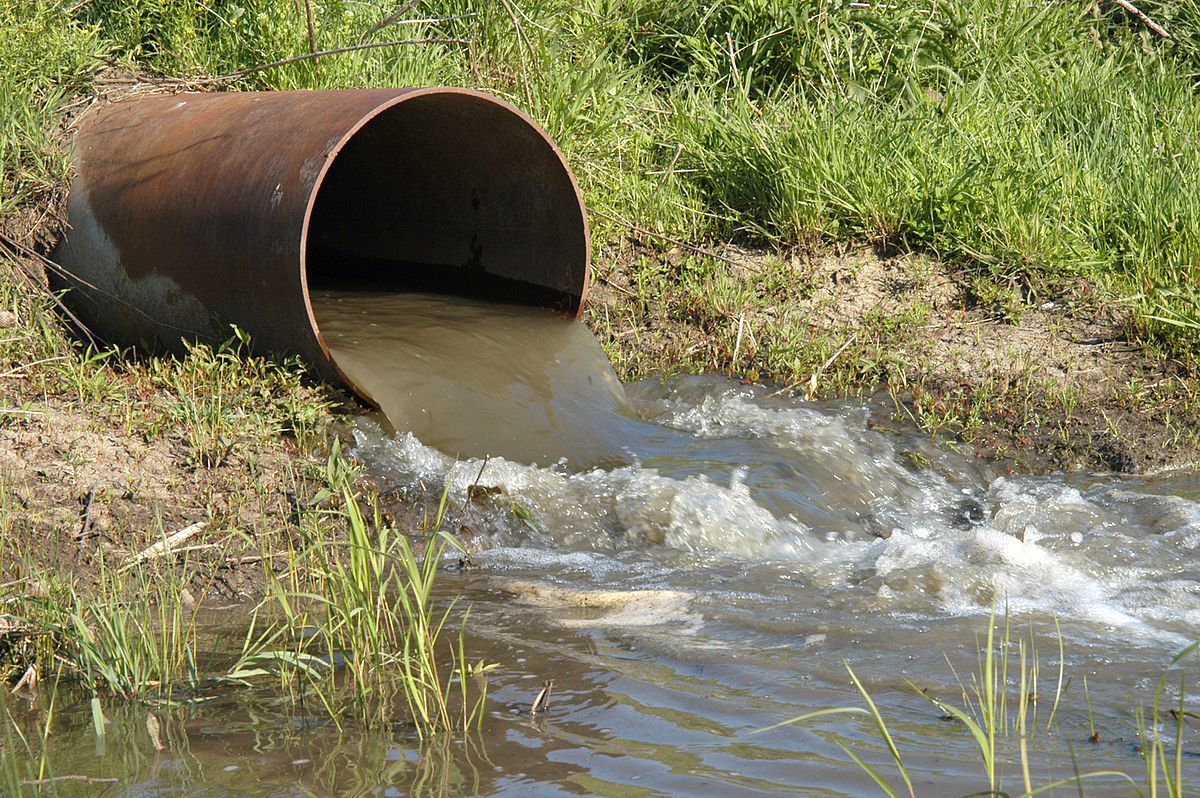
There is a bill currently moving through the state legislature which has the potential to significantly improve the water quality in local communities. The bill (S-1073) would allow municipalities and counties to set up stormwater utilities.
For a quick primer on what we mean by stormwater and why it is a serious problem: it all boils down to the fact that, through development, we have, over time, paved over much of our land with impervious surfaces, which water cannot pass through and instead often flows onto the roads, down storm drains, and directly into our streams. In a more natural area, most of the land is made of pervious materials, like soil, and so most of the rain water is absorbed into the ground to recharge our aquifers. If that area is paved over with concrete or asphalt, or has a building built on top of it, that water now has to move elsewhere.
Dealing with Pollution and Flooding

It is important to note that it is the stormwater itself, not just the pollutants it may pick up along the way, which is the main problem – instead of percolating underground and being slowly released into streams from there, or at least being slowed down by trees and other plants, stormwater flowing over impervious surfaces flows quickly and directly into our streams, causing a kind of flash flooding effect which can scour away habitat, cause erosion, and leaves less water for base flow when the rain is long gone. Since we get our drinking water from the Kirkwood-Cohansey Aquifer, an unconfined aquifer relatively close to the surface, this also negatively impacts the amount of water available for human consumption. In fact, South Jersey is currently in a water deficit whereby we are pulling more water out of the aquifer than is being put back in by the rain, which is of course not a strategy than can be sustained.
A town would be allowed to impose a fee and use the money to upgrade stormwater systems which are aging and falling into disrepair.
So what would these stormwater utilities do? A town or county would be allowed to impose a fee on properties with impervious cover – think parking lots, malls, and developments – and use the money to fix, replace, or upgrade stormwater systems which much like a lot of other infrastructure in this country is rapidly aging and falling into disrepair. They could also fund things like green stormwater infrastructure to redirect rainwater into the ground where it would have normally gone in a more natural system with less impervious cover. An example of this would be a rain garden which collects the water flowing out of a home’s gutter, allowing it enough time to percolate into the ground to recharge the aquifer rather than down the storm drain and directly into a local stream. This kind of utility would be especially useful for a city that has a combined sewer overflow (CSO) system, like Camden. In CSOs, the stormwater and sewage use the same pipes. Many CSOs were built over 100 years ago, with the comparatively lower population and impervious cover of the time, and that plus with the need for repairs leads to sewage overflow during even moderate rain events, seriously impacting surface water as well as quality of life for local residents. Stormwater utilities would allow them to fund projects like green infrastructure which would redirect stormwater away from the combined sewer and could help fund repairs or eventually a total replacement of the system. To reiterate one important point, the state would merely allow local municipalities or counties to create these utilities for themselves, if they chose to do so, and the municipality or county would run it. It’s also worth noting that this isn’t exactly a novel approach: There are over 1,600 stormwater utilities in America across 40 states. If anything, we are playing catch-up.

Without taking action to tackle the problem of stormwater runoff head-on, we will continue to see things like stream flooding, erosion, and habitat loss, insufficient aquifer recharge leading to water deficits, combined sewer overflows, as well as beach and lake closures, shellfish contamination, fish kills, and algae blooms exacerbated by the pollutants carried by stormwater.
What is the state of the bill now? As of this writing, S-1073 has already passed the state senate. It has also passed the Assembly Telecommunications and Utilities Committee and has been sent to the Assembly Appropriations Committee. If it makes it out of that committee, it will head to the full assembly for a vote, and then to the governor’s desk for his signature.
A coalition of state environmental groups, including the American Littoral Society and other SJ Watersavers partners, calling itself “Flood Defense New Jersey” is pushing for this legislation and other actions to help improve stormwater management in NJ #FloodDefenseNJ
